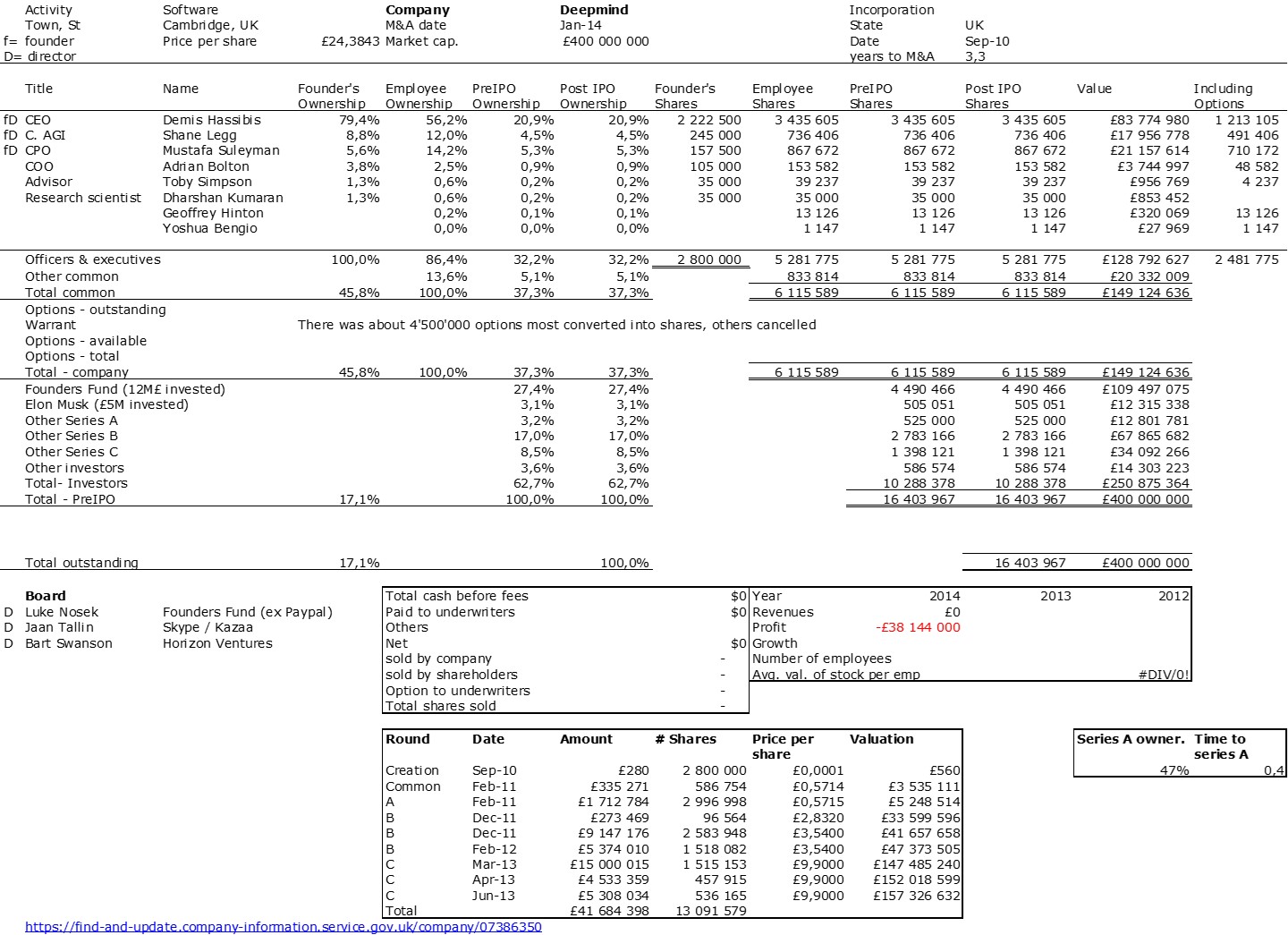I probably have to admit a bias in favor of startups led by tech founders. It is what I have been advocating for decades now. So when I read about stories going that way, I am more than happy. Recently I was mentioned by friends a documentary movie entitled The Thinking Game.
I do not know why I had not looked at DeepMind before all the more it is pretty easy to get information about British companies and this is a British startup. So you read me, I built its cap. table when it was acquired by Google in 2014 for about
What I read in the table:
– 3 or 4 main cofounders, but Demis Hassibis had the biigest initial stake (80%),
– investors took high risk as the company did not have that much but talent initially, (and no revenue until acquisition ?)
– the main or at least most famous investors were Peter Thiel and Elon Musk,
– the company did not raise that much money : 2M£ in Feb. 2011, £15M in Dec. 2011 / Feb. 2012, finally £25M in 2013 before the £400M acquisition by Google in Jan. 2014.
That’s it for the basic facts. More importantly, the lessons in the article my friends sent to me are:
– First, DeepMind combines crystal-clear strategic clarity with never-ending tactical flexibility. What comes across in the film is the company’s extraordinary willingness to experiment wildly and fail persistently.
– Second, DeepMind’s mission has helped it recruit some remarkable scientific talent, critical to its success. In a discussion after the movie, Hassabis explained that he had always resisted investor pressure to move to Silicon Valley and had been determined to remain in London. “The UK has always been very strong in science and innovation and has a rich history in computing,” he said. “We are trying to carry on in that tradition.” Hassabis reckoned that there was a lot of under-utilised academic talent in Europe, and elsewhere, that could be attracted to London. So it has proved.
– Third, what was essential for DeepMind’s success was its ability to scale rapidly. Back in 2010, few VCs were prepared to go anywhere near a startup with such extravagant ambitions and no business plan. Much of its initial capital came from US investors, including Peter Thiel and Elon Musk. The company also felt compelled to sell out to Google in 2014 to give it the capital, data and computing firepower necessary to stay at the leading-edge of AI. (The extra resources were essential for recruiting and retaining top talent, too).
Often not to say always the same lessons about risk taking and ambition…
PS: I have not watched the movie yet, so I may amend this post in the near future.

